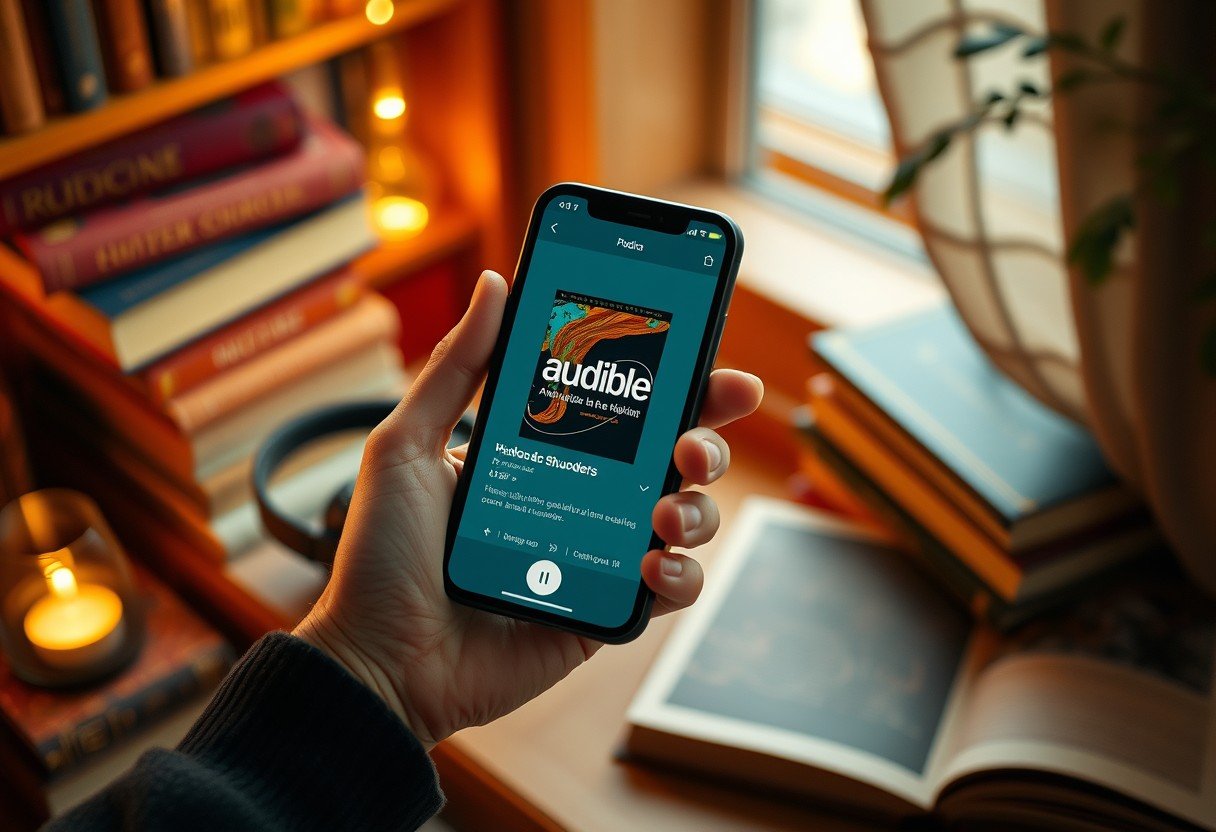Wondering if you can share your thoughts on a podcast without revealing your identity? The answer is yes, but it depends on the platform. Most major podcast apps require an account to leave a review, which links your feedback to you in some way. However, you can take steps to protect your privacy while still supporting creators. This guide explains how to navigate podcast ratings anonymously and what to watch out for.
Why Your Podcast Ratings Matter More Than You Think
A simple star rating or a short review might seem small, but it has a huge impact. Your feedback is one of the most powerful tools for both podcast creators and fellow listeners. It helps shape the content you love and guides others to find their next favorite show.
When you rate a podcast, you directly influence its visibility. Platforms like Apple Podcasts use ratings and reviews as a key factor in their ranking algorithms. Higher ratings can push a podcast up the charts, making it discoverable to thousands of new listeners. Your small action helps creators grow their audience and gain the recognition they deserve.
Creators also rely on your feedback to understand what works and what doesn’t. Honest reviews give them direct insight into their audience’s preferences. This feedback loop is essential for improving the show’s quality, from audio production to content choices. By sharing your opinion, you become part of the creative process, helping to make the podcast better for everyone.
How Popular Platforms Handle Your Reviews
Every podcast app has its own rules for ratings and reviews, which affects how anonymous you can be. Understanding the differences between the major platforms is the first step to protecting your privacy while sharing your feedback. Some link reviews directly to a public profile, while others offer more discretion.
Apple Podcasts is one of the most influential platforms for reviews. You must have an Apple ID to leave a rating and review, and you must choose a nickname that will be displayed publicly. While this nickname doesn’t have to be your real name, your review is still tied to your account. Spotify, on the other hand, only offers a star rating system and doesn’t currently support written reviews. Your rating is tied to your Spotify account but is not displayed publicly.
Here is a quick breakdown of how the most popular platforms manage user ratings:
| Platform | Account Required? | What’s Publicly Visible? | Anonymity Level |
|---|---|---|---|
| Apple Podcasts | Yes (Apple ID) | Nickname and Review | Low (Uses a pseudonym) |
| Spotify | Yes (Spotify Account) | Rating is not public | High (Rating is private) |
| Google Podcasts | No Rating System | N/A | N/A |
As you can see, true anonymity is rare. Most platforms require an account to prevent spam, which means your activity is always tracked internally even if your name isn’t public.
Staying Anonymous: Your Options for Private Feedback
If maintaining your privacy is a top priority, you still have several great options for sharing your thoughts on a podcast. You don’t always have to use the public rating systems built into podcast apps. In fact, some of the most valuable feedback happens through more private channels.
Many listeners create a separate account with a pseudonym or a non-identifiable email address specifically for reviewing content online. This is a common and effective strategy for leaving public feedback on platforms like Apple Podcasts without linking it to your personal or professional identity. It allows you to be honest without fear of judgment.
If you want to ensure your feedback is heard by the creator without being public, consider reaching out directly. This is often the most impactful way to share your thoughts.
- Check Their Website: Most podcasts have an official website with a contact form or email address for listener feedback.
- Use Social Media: You can send a direct message to the podcast’s social media accounts on platforms like Twitter or Instagram.
- Join Their Community: Some podcasts have private communities on platforms like Patreon or Discord where you can share feedback directly with the creators and other fans.
This direct approach not only protects your privacy but also fosters a stronger connection with the podcast creators.
Understanding the Privacy Risks Involved
When you rate a podcast, you are interacting with a digital platform that collects data. Even if you use a fake name, your activity can be tracked through other means. It’s important to be aware of how your information might be used so you can make informed decisions.
Most platforms use cookies, device identifiers, and your user account to monitor interactions. This means that even if your review is “anonymous” to the public, the platform itself can connect that review back to you. This data is often used for advertising purposes or to analyze user behavior in aggregate.
While it’s unlikely that a platform would expose your identity for leaving a negative review, it’s a good practice to read the privacy policy of any app you use. This document will outline exactly what data is collected and how it is stored and used. Being informed about these practices helps you align your actions with your personal privacy preferences.
The Legal Side of Leaving Anonymous Reviews
While rating a podcast seems harmless, there can be legal implications to consider, especially with written reviews. Online anonymity is not absolute, and platform terms of service agreements often outline specific rules you agree to when you use their service.
Every major platform has a terms of service agreement that prohibits certain types of content, including defamatory, harassing, or hateful comments. If your review violates these terms, the platform has the right to remove it and may even suspend your account.
In rare and extreme cases, if a review is considered legally defamatory (a false statement that harms someone’s reputation), a podcast creator could take legal action to uncover the identity of the reviewer. While this is uncommon, it highlights the importance of keeping feedback constructive and respectful, even when it’s critical. Focusing on the content of the show rather than making personal attacks is always the safest approach.
The Future of Podcast Feedback Systems
The way we give feedback on podcasts is likely to change in the coming years. As the industry grows, platforms are looking for better ways to measure listener satisfaction beyond a simple five-star rating. We can expect to see more detailed and privacy-focused systems emerge.
Future rating systems might include more specific feedback options, such as rating different aspects of a show like audio quality, host performance, or topic relevance. This would give creators more actionable data to work with. There is also a growing demand for features that better protect user anonymity while still allowing for genuine engagement.
Ultimately, your feedback will become even more influential. As platforms develop more sophisticated algorithms, your ratings, reviews, and even listening habits will help tailor content recommendations more accurately. By participating, you help elevate high-quality content and create a more personalized and rewarding listening experience for everyone.
Frequently Asked Questions about Anonymous Podcast Ratings
Can I be 100% anonymous when rating a podcast?
True 100% anonymity is very difficult to achieve on major platforms because most require an account. While you can use a pseudonym and a private email, the platform can still link your activity to your account or device internally.
What is the best way to give honest but critical feedback?
If you want to provide critical feedback, the best approach is to contact the podcast creator directly through their website or social media. This keeps the conversation private and is often more constructive than a public review.
Can my podcast review be traced back to me?
Yes, a review can often be traced back to you by the platform through your user account, IP address, or device ID. In very rare legal situations, a court order could be used to reveal your identity if a review is considered defamatory.
Will my review be removed if it’s negative?
Most platforms will not remove a review simply because it’s negative. However, they will remove reviews that violate their terms of service, such as those containing hate speech, harassment, or spam.
How do I change or delete a podcast review I already left?
On most platforms, like Apple Podcasts, you can edit or delete your review. You typically need to log into your account, find the podcast you reviewed, and select the option to edit or remove your submission.









Leave a Comment